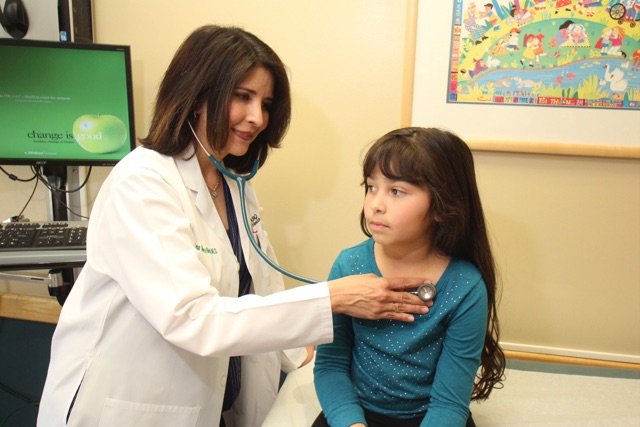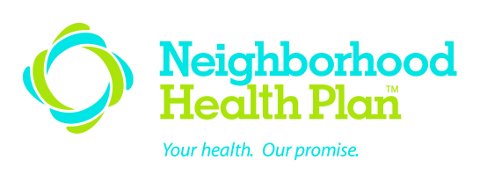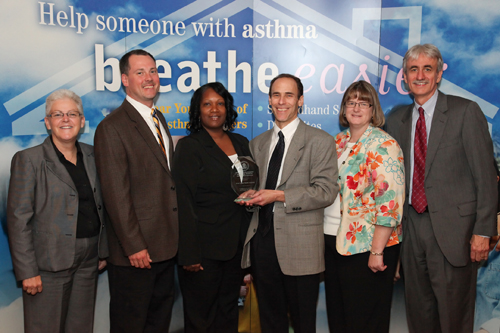Peach State Health Plan in Atlanta, Georgia, is a statewide Medicaid managed care organization that delivers a customized asthma program for teenagers. The Plan is part of the Centene Corporation, an integrated health enterprise that delivers Medicaid services in 19 states. Peach State Health Plan has a targeted asthma improvement program focused on their teen members with asthma because almost 20 percent of teens in the Plan have an asthma diagnosis (13,159 members with asthma out of 66,138 members ages 13–19.) Peach State's innovative program has successfully engaged teens with asthma—a notoriously hard group to engage—and has demonstrated success in improving teens' ability to understand their asthma, improve their asthma, and address the environmental and social factors that can make asthma worse.
Peach State's Asthma Team seeks to reduce teens' asthma healthcare utilization, improve their asthma status (i.e., functional severity), ensure appropriate medication regimens per NIH EPR-3 Asthma Program Guidelines and promote self-management. They pursue these goals by facilitating relationships between teens, caregivers, primary care physicians and medical homes, providing access to specialists, delivering tailored education and addressing social issues, such as environmental exposures at home and school.
The Plan delivers stratified asthma management services, including health coaches and environmental, medical and social interventions in clinic, at home and at school. The Asthma Team includes health plan case managers, medical directors, pharmacists, a disease manager/ health coach and respiratory health coaches, who serve as the primary contact for teens, their families, the care team and partners.
Teens with an asthma diagnosis in the Plan's information system are stratified into three intervention groups—low, moderate and high risk—based on a multi-stage and validated initial health assessment. Sixty percent (60%) are in the low-risk intervention group and receive education materials by mail. The moderate group receives telephonic and mail outreach and can receive home visits if appropriate. The high-risk group, which includes about 700 members per year, receives telephonic and mail outreach and in-home visits. Peach State uses an innovative and award-winning incentive program, CentAccount, to motivate teens (and others) to take preventive care actions. For example, when a healthy activity, such as a preventive well visit, is completed, members receive money on a debit card they can use to purchase healthy items. This has encouraged teens with asthma to get well visits, thus helping to identify previously undiagnosed teens with asthma. In fact, teenage members in the asthma program have increased their attendance at regular wellness visits by more than 500% compared to a control group. This increased and proactive interaction with primary care providers at scheduled visits has helped teens with asthma to stay healthy and to stay ahead of their asthma rather than having them interact with their providers only after a serious asthma attack.
All teen members in Peach State's asthma program receive award winning, age-appropriate educational materials, including the multilingual and multimedia, "Off the Chain—It's All About Asthma" and "On Target with Your Asthma." These materials promote understanding of asthma, environmental triggers and appropriate medication use. Members in the low-risk group receive education by mail and can also receive peak flow meters, spacers, and masks as indicated.
Members in the moderate-risk group receive mailed education materials and telephonic counseling by health coaches to identify medical, environmental and social needs and to provide asthma education and self-management support. During calls, coaches collect self-reported asthma symptom data, review individualized treatment plans and self-management guides, and discuss environmental triggers; they also teach teens signs and symptoms that merit rapid intervention. The health coaches communicate back to the medical home and cooperating community organizations, such as schools and churches.
High-risk members receive everything the moderate group receives—education, barrier assessment, coordination of care and additional support—and in-home visits by a licensed Respiratory Care Practitioner. Home visits include disease education, medication counseling and an environmental assessment, which, according to Peach State, occurs in "the ideal setting to… assess all of the factors that impact the severity of the patient's condition…and [to facilitate] patient specific education." During visits, health coaches conduct spirometry screening and pulse oximetry, measure vital signs, review medications, demonstrate how to use spacers and peak flow meters, and discuss barriers to effective asthma control. During home visits, teens also receive counseling from a respiratory therapist about environmental factors in the home environment and their impact on asthma to take advantage of the 'teachable moment' that a home visit provides. The home visit team also identifies environmental factors in the home that may be contributing to the members' asthma and reviews in detail the teen-focused asthma education materials that address allergens and irritants.
In addition to the tailored interventions stratified by risk, Peach State's Asthma Team also bolsters clinical providers' abilities to care for teen asthma patients. The Asthma Team functions as an extension of the physician's practice by reinforcing the individual asthma management plan and providing up-to-the minute documentation on functional status, barriers and recommendations for future treatment based on the assessment.
Using clinical and financial data (i.e., medical and pharmacy claims), the Plan was able to model the health improvements and cost savings generated by the teen-focused asthma program. Compared to a control group, teens in the program had nine percent fewer respiratory-related unplanned healthcare utilization incidences and a shorter average length of stay when unplanned hospitalizations did occur. They were more likely to visit their primary care physicians as planned and to receive recommended flu vaccines, a critical self-management step as people with asthma are at increased risk of severe disease and complications from the flu because influenza can cause further inflammation of the airways and lungs. Peak flow meter use and controller medication use both improved at higher rates for program participants compared to a control group, while rescue inhaler use declined, indicating better overall asthma medication management and compliance. Peach State estimates the program saves approximately $320 per member per month. Recognizing the importance of environmental management of asthma, particularly for its Medicaid population, and the impact on the quality of care and patient outcomes that their program is achieving, Peach State Health Plan, Centene and Nurtur intend to continue funding the asthma disease management program.




